In our global village, major religions often take the spotlight, overshadowing the rich tapestry of lesser-known spiritual practices that thrive quietly around the world. These religions, with their unique beliefs, rituals, and histories, offer a fascinating glimpse into the diverse ways humanity seeks connection and meaning. Here are 15 astonishing facts about some of these lesser-known faiths that are sure to intrigue and enlighten.
1. Zoroastrianism: The Fire Worshippers
Zoroastrianism, one of the world’s oldest monotheistic religions, was founded by the Prophet Zoroaster in ancient Persia, now Iran, over 3,500 years ago. Central to this faith is the worship of fire, which symbolizes purity and the presence of their god, Ahura Mazda. Zoroastrians gather in Fire Temples, where a sacred fire, once kindled, is never allowed to extinguish. This religion influenced later monotheistic faiths, including Judaism, Christianity, and Islam, particularly in concepts of the dualism of good and evil and the final judgment day.
2. Candomblé: The Dance of the Orishas
Candomblé, a vibrant Afro-Brazilian religion, blends elements of Yoruba, Fon, and Bantu beliefs brought by enslaved Africans to Brazil. It revolves around the worship of Orishas, deities representing natural forces and human experiences. Each Orisha is associated with specific colors, elements, and foods. Rituals involve music, dance, and offerings to connect with these divine forces. Despite facing persecution, Candomblé has persevered, becoming a vital part of Brazil’s cultural fabric.
3. Jainism: The Path of Non-Violence
Jainism, originating in ancient India, is centered on the principle of ahimsa, or non-violence, which extends to all living beings. Jains follow strict vegetarianism and often wear masks to avoid inhaling insects, highlighting their profound respect for life. They believe in karma and the cycle of rebirth, with the ultimate goal being liberation from the cycle of reincarnation through ethical living and self-discipline.
4. Shinto: The Way of the Kami
Shinto, or “the way of the gods,” is Japan’s indigenous faith, focused on kami, spirits residing in natural phenomena, objects, and ancestors. It emphasizes rituals and festivals that honor these kami, fostering a deep connection with nature and tradition. Unlike many religions, Shinto does not have a founding figure or sacred texts, making it deeply intertwined with Japanese culture and identity.
5. Druidry: The Ancient Celtic Path
Druidry, rooted in the ancient Celtic cultures of Britain, Ireland, and parts of Europe, has experienced a revival in modern times. Druids revere the natural world, celebrate solstices and equinoxes, and draw inspiration from Celtic mythology. They believe in the interconnectedness of all life and seek wisdom through nature, meditation, and creative expression. Modern Druidry is a fluid, evolving spirituality that adapts ancient practices to contemporary life.
6. Bön: The Hidden Treasure of Tibet
Bön, often overshadowed by Tibetan Buddhism, is Tibet’s indigenous spiritual tradition. It encompasses a rich array of rituals, meditations, and shamanistic practices aimed at harmonizing with the natural world. Bön practitioners believe in a universe populated by myriad spirits and emphasize the importance of maintaining a balance between humans and these spiritual forces.
7. Tengrism: The Sky Father Religion
Tengrism, an ancient Central Asian belief system, revolves around Tengri, the sky god, and the earthly Eje, a mother goddess. This shamanistic and animistic faith emphasizes living in harmony with nature, the ancestors, and the cosmos. The blue sky and the open steppe hold sacred significance, symbolizing the vastness and purity of Tengri’s domain. Tengrism has experienced a resurgence in countries like Mongolia and Kazakhstan, reflecting a revival of national identity and heritage.
8. The Druze Faith: Unity in Diversity
The Druze religion, originating in the 11th century in the Levant, is known for its eclectic system of beliefs incorporating elements of Ismaili Islam, Gnosticism, and Neoplatonism. Druze communities are tightly knit and known for their strong sense of identity and loyalty. The faith emphasizes the unity of God, reincarnation, and the pursuit of enlightenment, with a secretive religious hierarchy and closed religious texts.
9. Ifá: The Wisdom of the Oracles
Ifá, a divination system and religion from the Yoruba culture of West Africa, has spread to the Americas with the African diaspora. It centers on the Orishas, similar to Candomblé, and uses an intricate system of divination to guide adherents in making decisions and understanding their destinies. The Ifá literary corpus, known as the Odu Ifá, contains a vast collection of verses and teachings, offering wisdom on various aspects of life.
10. Caodaism: The Great Way
Caodaism, founded in Vietnam in the early 20th century, is a syncretic religion that combines elements of Buddhism, Taoism, Confucianism, Christianity, and Islam. It aims to promote unity among the world’s major religions and advocates for peace and understanding. Caodaists follow a hierarchical structure similar to that of the Catholic Church and engage in unique practices such as séances and vegetarianism.
11. Rodnovery: The Slavic Native Faith
Rodnovery, the revival of ancient Slavic paganism, celebrates the deities, rituals, and traditions of Slavic ancestors. It emphasizes the worship of nature and the cycle of the seasons, with rituals often held in sacred groves. Rodnovery is part of a broader movement of European pagan revivals seeking to reconnect with pre-Christian spirituality and heritage.
12. The Mandaean Religion: Keepers of the Gnostic Tradition
The Mandaeans, primarily found in Iraq and Iran, practice a Gnostic religion with a dualistic worldview. They revere John the Baptist and practice frequent baptisms in flowing water, symbolizing the purification of the soul. Their religious texts, written in a unique Mandaic script, detail the creation of the world, the soul’s journey, and the importance of living a moral life.
13. Rastafarianism: The Lion of Judah
Rastafarianism, emerging in Jamaica in the 1930s, combines elements of Christianity, Pan-Africanism, and mysticism. Rastafarians worship Haile Selassie I, the former Emperor of Ethiopia, as the Messiah and view Africa (particularly Ethiopia) as the Promised Land. The religion advocates for peace, unity, and resistance against oppression, with the ritual use of cannabis as a sacrament to achieve closeness to the divine.
14. Tenrikyo: The Joyous Life
Originating in 19th-century Japan, Tenrikyo’s teachings focus on living a “Joyous Life” through acts of charity, gratitude, and mutual respect. Followers believe in a single god, Tenri-O-no-Mikoto, and emphasize the importance of mental and physical purification. Tenrikyo has grown into a worldwide movement, with followers engaging in missionary work and social welfare activities.
15. The Alevi Faith: The Path of Love
Alevism, a mystical branch of Islam primarily found in Turkey, emphasizes love, tolerance, and the pursuit of divine truth. Alevis conduct unique worship ceremonies called Cem, which feature music, poetry, and dance, in a departure from mainstream Islamic practices. The community values spiritual leadership, with dedes (spiritual leaders) playing a crucial role in guiding followers on their spiritual journey.
Appreciating Lesser-Known Religions
These lesser-known religions remind us of the incredible diversity of human belief and the myriad ways we seek to understand and engage with the mysteries of existence. Exploring these faiths offers not only a window into the spiritual lives of others but also a mirror reflecting the universal quest for meaning, connection, and transcendence.
Catherine is a tech-savvy writer who has focused on the personal finance space for more than eight years. She has a Bachelor’s in Information Technology and enjoys showcasing how tech can simplify everyday personal finance tasks like budgeting, spending tracking, and planning for the future. Additionally, she’s explored the ins and outs of the world of side hustles and loves to share what she’s learned along the way. When she’s not working, you can find her relaxing at home in the Pacific Northwest with her two cats or enjoying a cup of coffee at her neighborhood cafe.



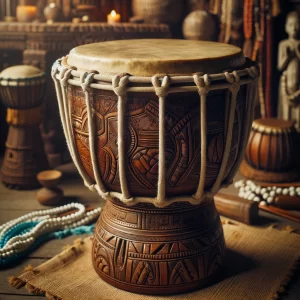


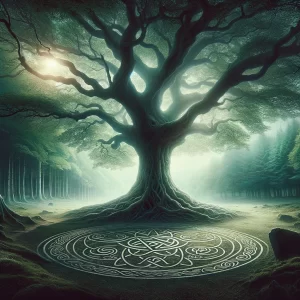



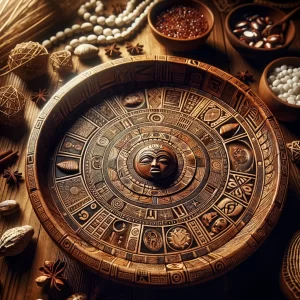

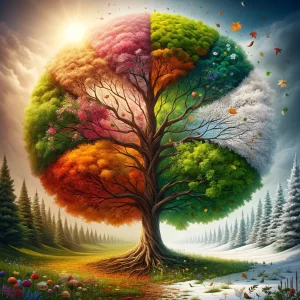




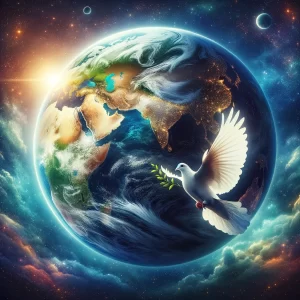
[…] is a divination system that originated in West Africa. For example, Beating Broke writes, “It centers on the Orishas, similar to Candomblé, and uses an intricate system of […]